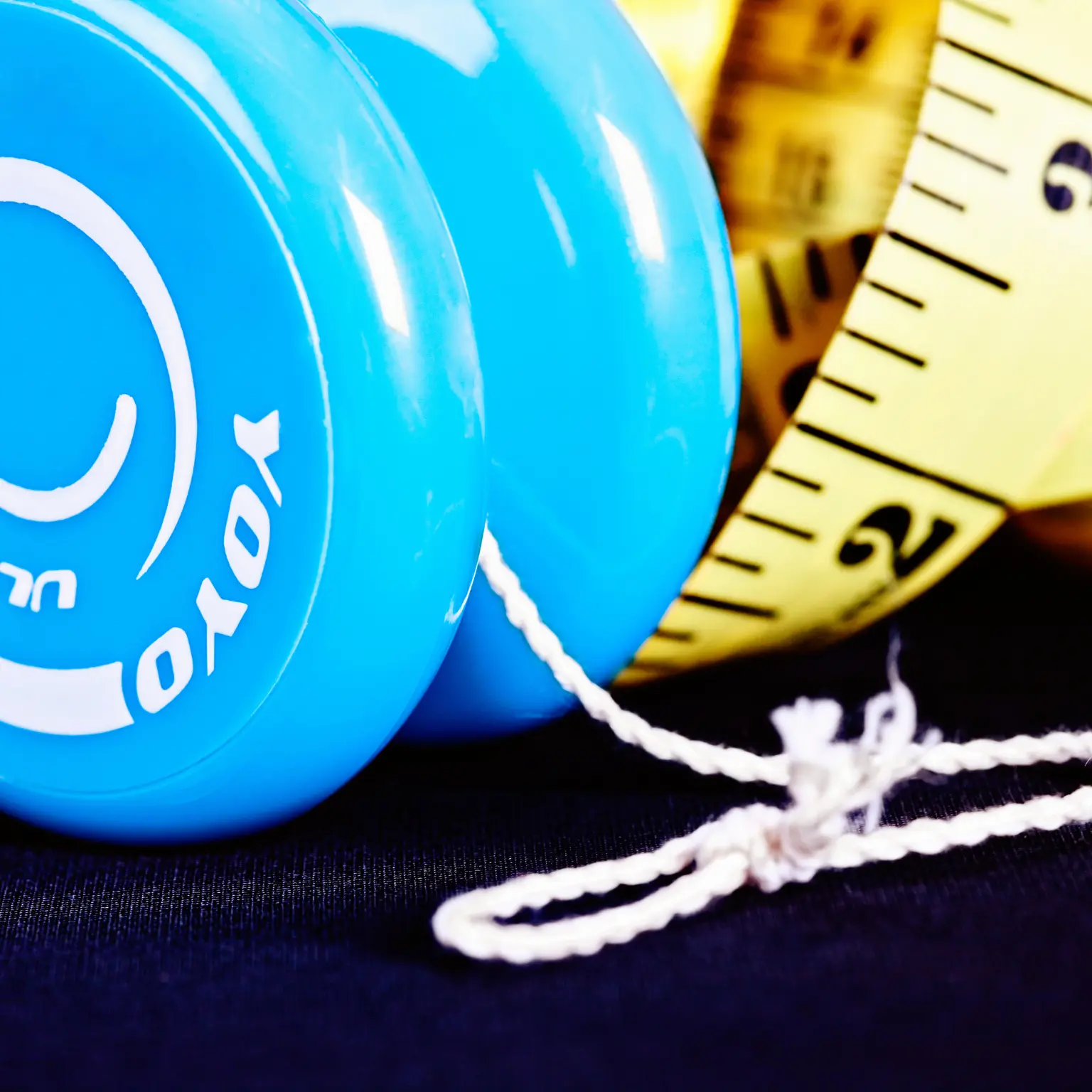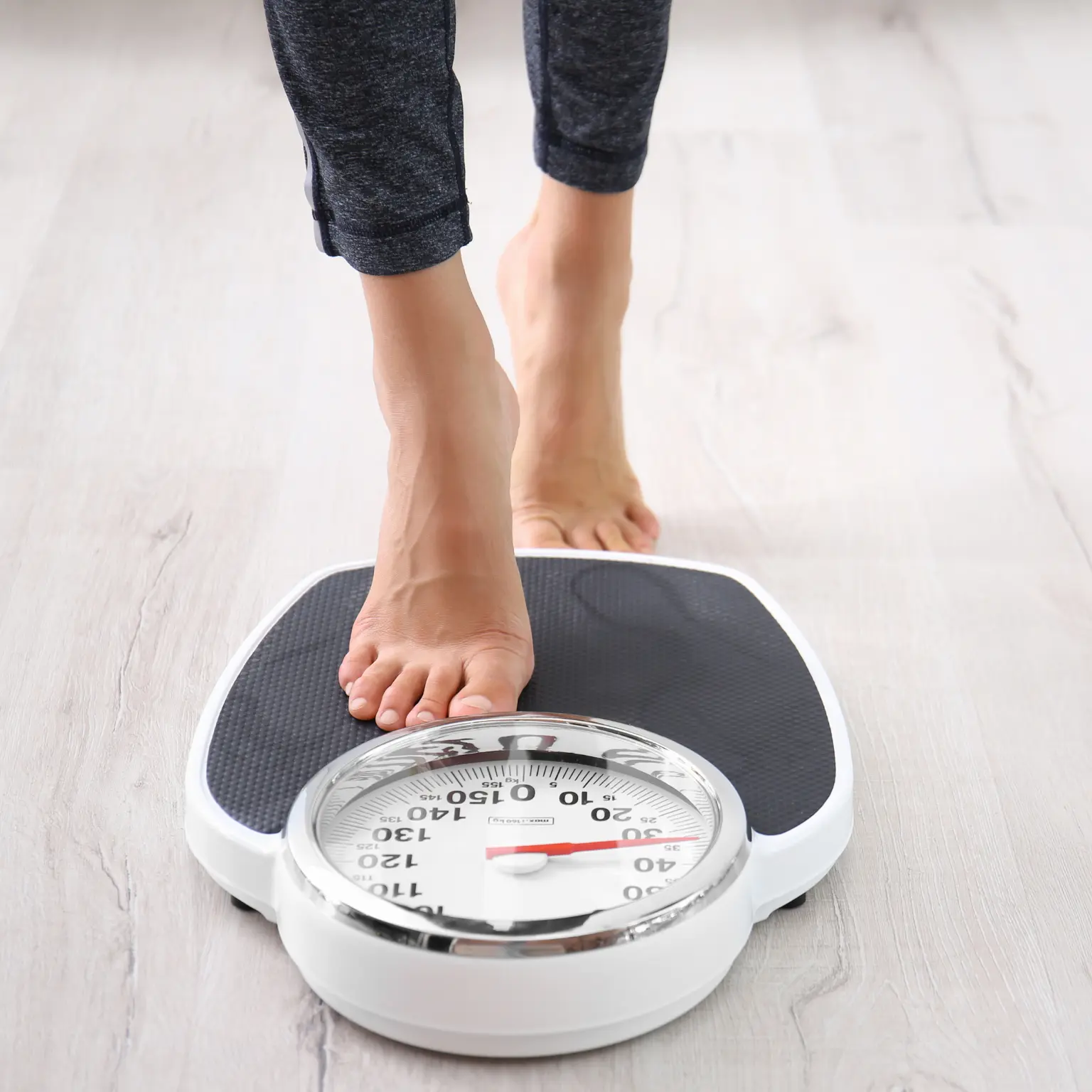Transform Your Body, Love Yourself: Your Guide to the Best Way to Lose Weight

Welcome to Healthy Stride Wellness! We’re excited to bring you this comprehensive guide on the best way to lose weight, designed to help you transform your body and embrace self-love. In today’s world, the pursuit of a healthier lifestyle is more important than ever.
Whether you’re just starting your weight loss journey or looking for effective weight loss methods to enhance your current routine, understanding the best strategies for sustainable weight loss is key.
Finding the best way to lose weight can be overwhelming, especially with so much conflicting information out there. That’s why we’ve crafted this blog to guide you through the process with expert advice, practical tips, and strategies that truly work.
We’ll cover everything from weight loss strategies and healthy eating habits to the best exercises for losing weight, ensuring you have all the tools you need to succeed.
Table of Contents
Key Takeaways
Before we dive into the details, here are three key takeaways that will shape your approach to weight loss:
- Sustainable Weight Loss Strategies: Quick fixes might yield fast results, but sustainable weight loss is about finding a balance that you can maintain in the long run. We’ll explore how to lose weight naturally and effectively without sacrificing your well-being.
- Self-Love and Weight Loss: Embracing self-love throughout your weight loss journey is crucial. This guide will help you learn how to love your body while losing weight, ensuring that your mindset is as healthy as your body.
- Effective Weight Loss Methods: We’ll break down various weight loss methods, from diet plans and exercise routines to lifestyle changes, to help you discover what works best for your unique needs.
Understanding Weight Loss
Wondering how to shed some pounds fast?
When people think about losing weight, the first question that often comes to mind is, “Wondering how to shed some pounds fast?” While the idea of shedding pounds rapidly might be appealing, it’s important to understand that quick weight loss doesn’t always equate to healthy or sustainable results. The best way to lose weight is through a combination of healthy weight-loss strategies that promote long-term success.
How Can I Lose Weight Naturally?
Losing weight naturally involves adopting healthy habits that support your body’s needs. This means focusing on whole foods, regular physical activity, and mindfulness. Natural weight loss doesn’t rely on extreme diets or harsh restrictions; instead, it encourages gradual changes that you can maintain over time. We’ll discuss the importance of incorporating nutrient-dense foods, staying hydrated, and getting enough sleep as part of a natural weight-loss plan.
Weight Loss Strategies for Beginners
Starting a weight loss journey can be daunting, especially if you’re unsure where to begin. Weight loss tips for beginners typically emphasize the importance of setting realistic goals, tracking progress, and staying consistent. We’ll guide you through the initial steps on how to start losing weight safely and effectively, helping you build a strong foundation for your weight loss efforts.
Weight Loss Strategies for Beginners
Weight Loss Tips for Beginners
Embarking on a weight loss journey can feel overwhelming, but with the right strategies, it’s entirely achievable. The key to success lies in starting small and gradually building healthier habits. Here are some weight loss tips for beginners to get you started:
- Set Realistic Goals: Begin by setting achievable goals. Instead of trying to shed a lot of weight rapidly, concentrate on dropping 1-2 pounds every week. This steady approach is not only more sustainable but also healthier for your body.
- Track Your Progress: Keep a journal or use an app to track your food intake, exercise routines, and weight changes. Keeping an eye on how you’re doing can keep you on track and fired up.
- Stay Consistent: Consistency is crucial in any weight loss journey. Stick to your plan, even when progress seems slow. Remember, every small step counts toward your ultimate goal.
How to Start Losing Weight: Setting Realistic Goals
One of the most common pitfalls in weight loss is setting unrealistic goals. When you set overly ambitious targets, you’re more likely to feel discouraged if you don’t meet them. Instead, focus on setting realistic, short-term goals that can be adjusted as you progress.
For instance, rather than aiming to lose 20 pounds in a month, set a goal to lose 5 pounds in the first month. This approach not only sets you up for success but also helps you maintain a positive mindset throughout your journey. We’ll discuss how to break down your goals into manageable steps and the importance of celebrating small victories along the way.
How to Lose Weight Safely and Effectively?
Safety should always be a priority when trying to lose weight. Rapid weight loss methods, such as crash diets or excessive exercise, can be harmful and counterproductive in the long term. Instead, focus on safe and effective weight loss methods that support your overall health.
This includes eating a balanced diet, incorporating regular physical activity, and avoiding extreme calorie restriction. We’ll explore how to create a weight loss plan that prioritizes your health, including tips on how to lose weight without exercise for those who may have physical limitations or preferences.
Diet Plans for Weight Loss
Best Diet for Weight Loss: What Works?
When it comes to diet plans for weight loss, there’s no one-size-fits-all solution. The best diet for weight loss is one that suits your lifestyle, preferences, and nutritional needs. Popular diets such as the Mediterranean diet, low-carb diets, and intermittent fasting have all been shown to be effective for different people.
However, the most important factor in choosing a diet is sustainability. A diet that you can stick to long-term is more likely to yield lasting results. We’ll discuss the pros and cons of various diet plans and how to find the best diet for weight loss that works for you.
Healthy Eating Habits: The Foundation of Sustainable Weight Loss
Healthy eating habits are the cornerstone of sustainable weight loss. Rather than focusing on what you can’t eat, concentrate on incorporating more nutrient-dense foods into your diet. This includes plenty of fruits, vegetables, whole grains, lean proteins, and healthy fats.
Developing healthy eating habits doesn’t mean you have to give up your favorite foods entirely. It’s about finding a balance that allows you to enjoy what you eat while still achieving your weight loss goals. We’ll provide practical tips on how to make healthier food choices, plan balanced meals, and maintain these habits for life.
What Foods Help You Lose Weight?
Certain foods can naturally support your weight loss efforts by boosting metabolism, reducing appetite, and improving digestion. Foods high in fiber, protein, and healthy fats are particularly beneficial for weight loss. Examples include leafy greens, berries, lean meats, fish, nuts, and seeds.
In addition to specific foods, it’s also important to focus on portion control and mindful eating practices. We’ll explore how to incorporate weight loss-friendly foods into your diet and how to develop a meal plan that supports your weight loss goals.
Exercise and Weight Loss
Exercise for Weight Loss: What Works Best?
Exercise plays a crucial role in any weight loss plan, but not all exercises are created equal. The best exercises for weight loss are those that increase your heart rate and build muscle mass, such as cardio and strength training. High-intensity interval training (HIIT) is also highly effective for burning calories and improving fitness levels in a short amount of time.
However, it’s important to choose exercises that you enjoy and can stick with consistently. We’ll discuss different types of exercises, including those that target specific areas like belly fat, and how to incorporate them into your routine for optimal results.
How to Lose Belly Fat: Targeted Exercise Strategies
Belly fat is often one of the most stubborn areas to lose weight from, and it can be a source of frustration for many. While spot reduction (losing fat from a specific area) isn’t possible, combining a healthy diet with targeted exercises can help reduce belly fat over time.
Effective exercises for belly fat include core-strengthening moves like planks, crunches, and leg raises, along with full-body workouts that burn overall body fat. We’ll provide a step-by-step guide to these exercises and how to integrate them into your fitness routine.
Tips for Shedding Pounds Without Working Out
While exercise is an important component of weight loss, it’s possible to lose weight without it, particularly through dietary changes. Focusing on portion control, reducing calorie intake, and making healthier food choices can lead to weight loss even in the absence of exercise.
For those who are unable to exercise due to medical reasons or time constraints, we’ll explore how to lose weight without exercise and maintain a healthy lifestyle. This section will highlight the importance of diet, sleep, and stress management in achieving weight loss goals.
Staying Motivated During Weight Loss
How to Stay Motivated During Weight Loss?
Maintaining motivation throughout your weight loss journey can be challenging, especially when progress seems slow or obstacles arise. However, staying motivated is crucial for achieving and sustaining your weight loss goals. Here are some effective weight loss strategies to keep your spirits high and your determination strong:
- Set Clear and Achievable Goals: Define what you want to achieve with specific, measurable objectives. For example, aim to lose a certain amount of weight within a realistic timeframe or commit to exercising a set number of times per week.
- Track Your Progress: Keep a journal or use a mobile app to record your daily food intake, exercise routines, and weight changes. Seeing your progress over time can be incredibly motivating and help you stay focused on your goals.
- Reward Yourself: Celebrate your achievements by rewarding yourself when you reach certain milestones. Rewards can be simple and non-food-related, such as treating yourself to a new workout outfit or enjoying a relaxing spa day.
- Find a Support System: Surround yourself with supportive friends, and family members, or join a community of individuals with similar goals. When you share your experiences with others, it can help you stay motivated and accountable.
- Stay Positive and Patient: Weight loss is a gradual process, and setbacks are normal. Maintain a positive mindset and remind yourself that each healthy choice brings you closer to your goal.
- Visualize Success: Regularly envision how achieving your weight loss goals will improve your life. This visualization can boost motivation and reinforce your commitment to healthy weight loss.
Weight Loss and Self-Love: Building a Positive Mindset
Embracing self-love is a fundamental aspect of successful and sustainable weight loss. How you perceive and treat yourself significantly impacts your motivation and overall well-being during your weight loss journey. Here’s how to cultivate self-love while losing weight:
- Accept and Appreciate Your Body: Recognize that your worth is not defined by your weight. Appreciate your body for all it does and focus on improving your health rather than just changing your appearance.
- Practice Mindfulness: Engage in mindfulness practices such as meditation or yoga to connect with your body and mind. Mindfulness can help you make more conscious, healthy choices and reduce stress-related eating.
- Avoid Negative Self-Talk: Replace self-criticism with positive affirmations. Encourage and motivate yourself as you would a close friend embarking on the same journey.
- Prioritize Self-Care: Ensure you’re taking time to care for your mental and emotional health. Activities like reading, spending time in nature, or pursuing hobbies can enhance your overall happiness and support your weight loss efforts.
- Focus on Non-Scale Victories: Celebrate improvements in energy levels, mood, fitness, and overall health, not just the numbers on the scale. Recognizing these successes reinforces a positive and loving relationship with yourself.
How to Create a Weight Loss Plan You’ll Stick To?
A well-structured and personalized weight loss plan is essential for achieving and maintaining your goals. Here’s how to create an effective weight loss plan tailored to your needs:
- Assess Your Current Lifestyle: Start by evaluating your current eating habits, physical activity levels, and daily routines. Identify areas where you can make realistic and sustainable changes.
- Set SMART Goals: Set SMART goals to make sure they are Specific, Measurable, Achievable, Relevant, and Time-bound. For example, a SMART goal you could set is, “I will walk for 30 minutes, five days a week, for the next month.”
- Plan Balanced Meals: Develop a meal plan that includes a variety of nutritious foods, focusing on healthy eating habits. Incorporate foods that help you lose weight, such as lean proteins, whole grains, fruits, and vegetables.
- Choose Enjoyable Exercises: Select physical activities that you enjoy, making it more likely you’ll stick to your exercise routine. This could involve a range of activities like dancing, swimming, hiking, or cycling.
- Schedule Regular Check-Ins: Set aside time each week to review your progress, adjust your plan as needed, and set goals for the upcoming week.
- Prepare for Challenges: Anticipate potential obstacles and have strategies in place to overcome them. This could include planning for busy days by preparing meals in advance or having quick workout options available.
- Seek Professional Guidance: Consider consulting with healthcare professionals, such as dietitians or personal trainers, to create a safe and effective weight loss plan.
Long-Term Weight Management
Long-Term Weight Management: Maintaining Your Results
Achieving your weight loss goals is a significant accomplishment, but maintaining those results requires ongoing effort and commitment. Here are some strategies for effective long-term weight management:
- Continue Healthy Eating Habits: Maintain the balanced diet that helped you lose weight, focusing on nutrient-dense foods and appropriate portion sizes. Allow for occasional treats to prevent feelings of deprivation.
- Stay Physically Active: Keep up with regular exercise routines. Incorporate a mix of cardiovascular exercises and strength training to support overall health and prevent weight regain.
- Monitor Your Weight Regularly: Keep track of your weight to catch any gradual increases early. Regular monitoring allows you to make timely adjustments to your diet and exercise habits as needed.
- Stay Mindful and Aware: Pay attention to your body’s signals of hunger and fullness. Being mindful when you eat can help you avoid overeating and develop a better connection with food, leading to a healthier lifestyle.
- Manage Stress Effectively: Develop healthy coping mechanisms for stress, such as meditation, deep breathing exercises, or engaging in hobbies. Managing stress reduces the likelihood of emotional eating.
- Get Adequate Sleep: Make sure you get sufficient good sleep every night. Not getting enough sleep can mess with the hormones that control your hunger and appetite, which might cause you to gain weight.
- Seek Ongoing Support: Continue engaging with support networks, whether through friends, family, or support groups. Talking about your experiences and difficulties can keep you motivated and responsible.
Sustainable Weight Loss: Why It Matters?
Sustainable weight loss is about making lasting lifestyle changes rather than relying on quick fixes. Here’s why focusing on sustainability is crucial:
- Improved Health Outcomes: Gradual and consistent weight loss reduces the risk of chronic diseases such as diabetes, heart disease, and hypertension more effectively than rapid weight loss methods.
- Prevents Weight Cycling: Yo-yo dieting and frequent weight fluctuations can be harmful to your health. Sustainable weight loss helps maintain a stable, healthy weight over time.
- Enhances Mental Well-being: Sustainable approaches reduce stress and promote a healthier relationship with food and your body, contributing to better mental health.
- Builds Healthy Habits: Focusing on long-term changes helps you develop and maintain healthy habits that support overall well-being beyond just weight loss.
- Increases Energy and Quality of Life: Sustainable weight loss strategies often include improved nutrition and regular physical activity, leading to increased energy levels and a better quality of life.
Want to shed some extra pounds and maintain a healthy weight?
Maintaining weight loss involves a continued commitment to the healthy habits that facilitated your initial success. Here are some effective weight loss methods to help you keep the weight off:
- Adopt a Balanced Lifestyle: Balance is key in diet, exercise, and leisure activities. Avoid extreme restrictions and allow flexibility to make your lifestyle enjoyable and sustainable.
- Stay Educated and Informed: Keep learning about nutrition and fitness to make informed choices that support your health goals. Stay updated with credible sources and expert opinions.
- Regularly Reassess Goals and Strategies: Periodically evaluate your habits and progress. Adjust your strategies as needed to accommodate changes in your lifestyle or health status.
- Practice Mindful Eating: Continue to be aware of your eating patterns, hunger cues, and emotional triggers. Mindful eating helps prevent overeating and promotes satisfaction with your meals.
- Prioritize Mental and Emotional Health: Recognize the importance of mental and emotional well-being in maintaining physical health. Engage in activities that reduce stress and promote happiness.
- Be Patient and Persistent: Understand that maintaining weight loss is an ongoing process that requires patience. Stay persistent even when faced with challenges or setbacks.
Finally
Thank you for joining us at Healthy Stride Wellness on this insightful journey towards discovering the best way to lose weight. We hope this comprehensive guide has provided you with valuable information, practical tips, and effective weight-loss strategies to support your health and wellness goals.
Remember, successful and sustainable weight loss is about embracing healthy eating habits, engaging in regular physical activity, and fostering a positive and loving relationship with your body. By implementing these effective weight loss methods and maintaining a balanced lifestyle, you can achieve and sustain your desired weight while enhancing your overall well-being.
Stay committed, stay motivated, and most importantly, be kind to yourself throughout this journey to lose weight. For more such insights and guidance on health and wellness, follow Healthy Stride Wellness and embark on a path towards a healthier, happier you with proven weight loss strategies.
FAQ’s
What are the most effective weight loss strategies?
Combine balanced nutrition, regular exercise (both cardio and strength training), and healthy lifestyle habits. Focus on whole foods, stay hydrated, get enough sleep, manage stress, and set realistic goals.
How can I lose weight without dieting?
Lose weight by making gradual lifestyle changes: practice mindful eating, control portions, choose healthier foods, and reduce processed food intake. Stay active, hydrated, and well-rested.
What exercises are best for losing weight?
Cardio exercises (running, cycling, HIIT) and strength training are best for weight loss. They burn calories, improve fitness, and boost metabolism. Pick activities you enjoy for consistency.
Please Note: Healthy Stride Wellness provides educational content and is not a replacement for medical advice. Consult a healthcare provider for any health issues.




